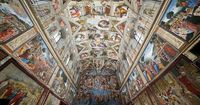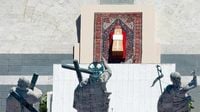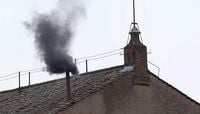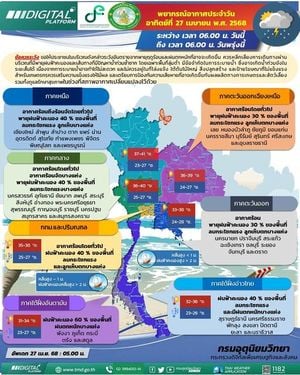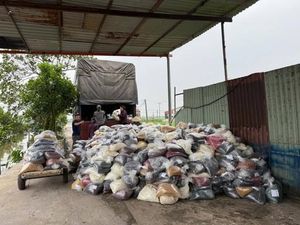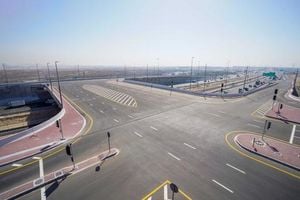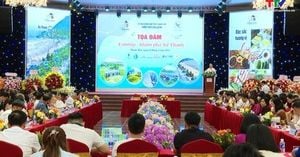The world mourns the passing of Pope Francis as the Catholic Church prepares for a significant transition. The funeral for Pope Francis was held on Saturday, April 26, 2025, at 10:00 AM, marking the beginning of a new chapter in the Church's history. His remains were interred at Santa Maria Maggiore, and the days following his funeral will be filled with rituals and preparations for the election of his successor.
Following the solemn funeral, the 'Novendiali' commenced, a period of nine days of mourning during which Masses are celebrated in suffrage of the deceased pontiff. The first Mass of suffrage took place on Sunday, April 27, 2025, at 10:30 AM, on the parvis of St. Peter's Basilica, presided over by Cardinal Pietro Parolin. This Mass is part of the ritual that allows the faithful to honor the late Pope. The participation of adolescents who arrived in Rome for the Jubilee from April 25 to April 27 added a poignant touch to the proceedings.
The schedule for the 'Novendiali' includes various celebrations involving different groups within the Church. On April 28, the faithful of the Diocese of Rome will participate, followed by the Chapters of the Papal Basilicas on April 29, the cardinals on April 30, and the Roman Curia on May 1. The Eastern Churches and Institutes of Consecrated Life will participate on May 2, and the final two days will again involve the cardinals.
As the mourning period unfolds, the Church is also gearing up for the Conclave, which is expected to begin between May 5 and May 10, 2025. This timeline aligns with the apostolic constitution Universi Dominici Gregis, which stipulates that the Conclave must commence between 15 and 20 days after the Pope's death. However, an amendment introduced by Pope Benedict XVI allows for the possibility of an earlier start if all cardinal electors are present in Rome.
Cardinal Reinhard Marx, Archbishop of Munich, has expressed confidence that the Conclave will not be lengthy, suggesting it may last only a few days. Speaking to the press shortly after the funeral, he emphasized that the cardinals will need to consider the strong emotional connection the faithful have to the late Pope Francis. He stated, "The sentiment of the people of God is something that the cardinals cannot ignore."
Marx outlined the qualities that the next Pope should possess, emphasizing the importance of being communicative and placing the credibility of the Gospel at the center of their mission. He noted that the future pontiff must have a universal vision, transcending national and cultural boundaries. This perspective aligns with the sentiments of many cardinals who have gathered in Rome for this pivotal moment.
As preparations for the Conclave continue, the Sistine Chapel will be closed to the public starting April 28, 2025. This closure is part of the traditional protocol that ensures the secrecy and sanctity of the election process. The cardinal electors will gather in the Chapel to cast their votes, adhering to strict rules that prohibit any outside communication during the voting period.
During the Conclave, the cardinals will take an oath to uphold the secrecy of the proceedings, emphasizing the gravity of their responsibility in selecting the new Pope. To be elected, a candidate must receive at least two-thirds of the votes from the electors. If no candidate achieves this majority after the 33rd or 34th ballot, a runoff will occur between the two candidates who received the most votes.
Notably, the absence of Cardinal Angelo Becciu, who has been convicted of fraud and embezzlement, will be felt during this election. His exclusion raises questions about the dynamics of the voting process and the potential alliances that may form among the electors.
The final Mass of the 'Novendiali' will take place on May 4, 2025, after which the cardinals will convene for the Conclave. The anticipation surrounding the election of the new Pope is palpable, with many expressing hope for a leader who can continue the legacy of compassion and outreach established by Pope Francis.
As the Church navigates this period of transition, the faithful are encouraged to reflect on the teachings of Pope Francis and the significance of this moment in the Church's history. The upcoming Conclave represents not just a change in leadership but also an opportunity for renewal and reinvigoration within the global Catholic community.
